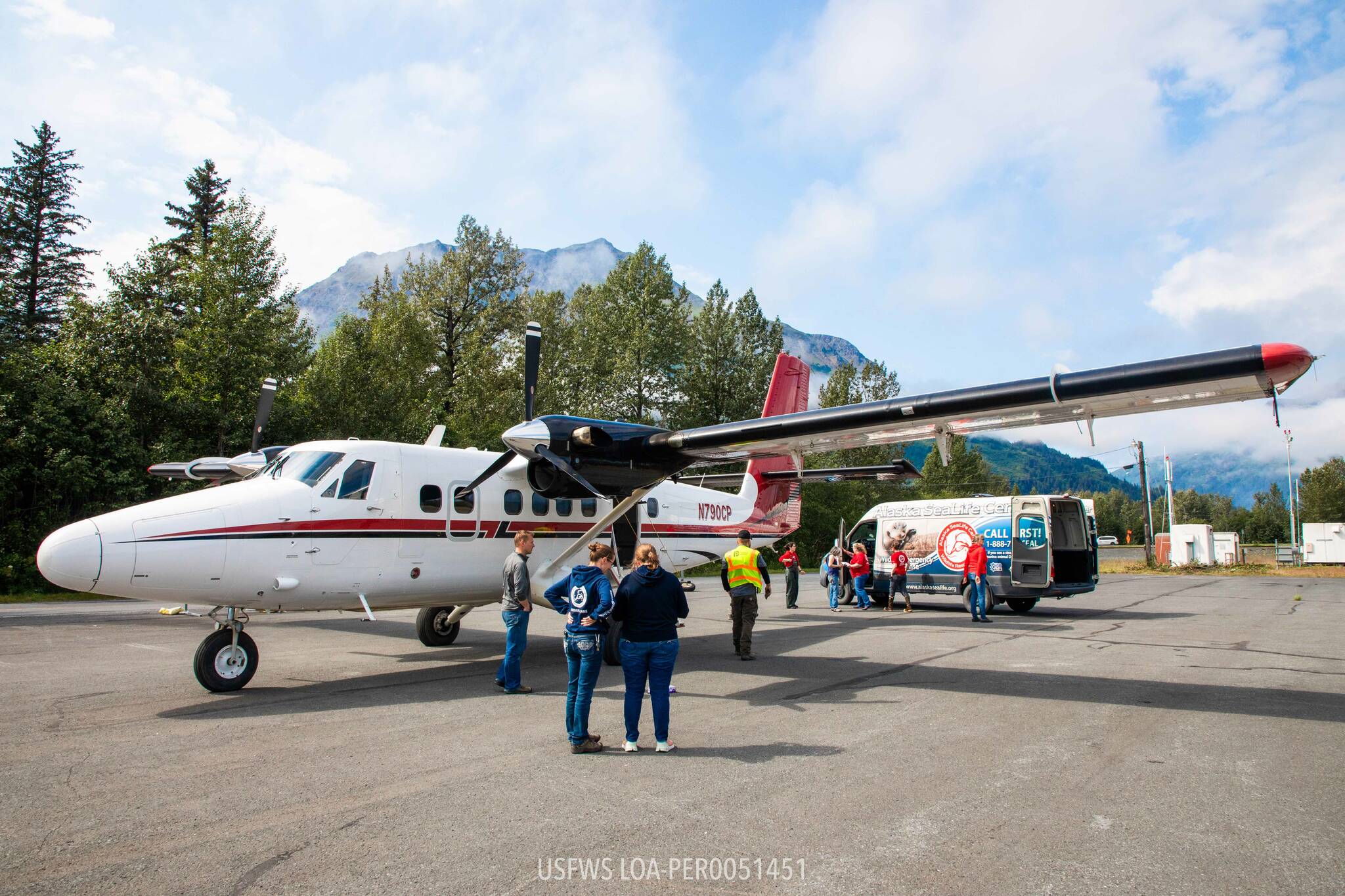A new patient was admitted to the Alaska SeaLife Center’s Wildlife Response Program earlier this month, in what the center is calling a “rare opportunity.”
The patient is a male Pacific walrus calf who was spotted on the North Slope around 4 miles inland. A Thursday release from the center says this location is far from its usual habitat. The animal was also found without its mother.
The walrus was transported to Seward by Alaska Clean Seas and ConocoPhillips Alaska, the release says. The calf was first moved to a warehouse and observed over night, then flown on a ConocoPhillips plane to Seward Airport on Aug. 1.
It’s been four years since a Pacific walrus was admitted into the wildlife response program, and the release says only 10 have been admitted in the 25-year history of the center.
The calf weighs around 200 pounds, and center staff estimate that it’s around a month old. Initial examination showed that the animal was malnourished, dehydrated, and had a cloudy eye. Blood work indicated he may be fighting an infection.
The care regimen for the calf is “more demanding than many other marine mammals require,” the release says. Walruses are “highly tactile and social,” so staff provide “round-the-clock ‘cuddling.’” The calf has already begun to eat formula from a bottle.
“We are lucky that his first night went well,” said ASLC Wildlife Response Curator Jane Belovarac in the release. “It isn’t often that we’re able to admit a walrus calf, but every time we do, we learn more about the species and how to care for them.”
The release says that as the calf’s condition improves, he may be moved to a space with “limited public viewing.”
To report an injured or stranded marine animal in Alaska, call the 24-hour Stranded Marine Animal Hotline at 1-888-744-7325.
For more information about the Alaska SeaLife Center and for continuing updates about the wildlife response patients, visit facebook.com/AlaskaSeaLifeCenter.

